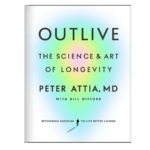
The dangers of “healthy” addictions
Though exercise has virtually unlimited health benefits, addiction to exercise can be a danger to mental and physical well-being. But what distinguishes exercise addiction from healthy engagement in physical activity?

To reduce appetite, skip late-night snacks
Two recent randomized trials found that biasing food intake toward the end of the day increases appetite and may reduce energy expenditure.

Antitumor mRNA vaccines are cause for optimism
Moderna recently announced preliminary results of a clinical trial involving a personalized antitumor mRNA vaccine, and despite the knee-jerk uproar, the treatment may prove to be another useful weapon in the battle against cancer

The Safety Debate Between Manual and Automatic Transmissions
When it comes to safety, the distinct advantages of automatic and manual vehicles depend on who’s in the driver’s seat.

Understanding nature’s effects on stress requires more than intuition
A recent study investigated how nature walks impact brain regions involved in stress responses but trips on its own assumptions

NR supplements: wasted money may not be the only risk with these questionable “anti-aging” drugs
A new study links NR supplementation with accelerated cancer progression in mice.

Book release date announcement
Outlive: The Science and Art of Longevity hits bookshelves March 28, 2023

Does solitude equate to loneliness?
At all stages of life, we spend more time alone than ever before in history. Are we growing lonely?

When it comes to medical advice, is less always more?
To the general public, the trial-and-error process of science and medicine may erode confidence, but without it, we’d have no science and medicine at all.
Can an annual flu vaccine reduce your risk of Alzheimer’s disease?
A recent retrospective study suggests that flu vaccines reduce risk of Alzheimer’s disease, but the study raises as many questions as it answers.
